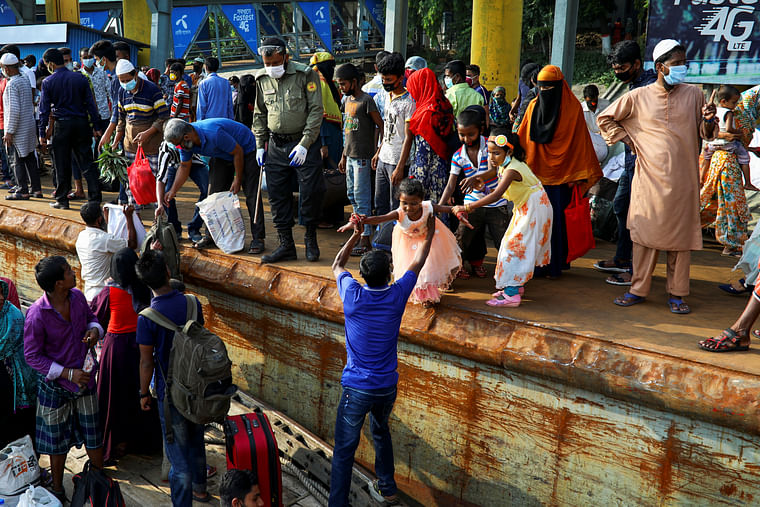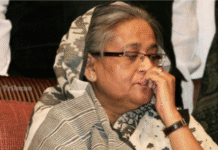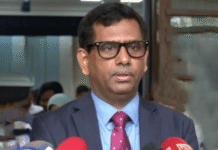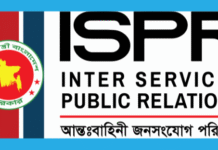
The number of coronavirus cases and deaths related to the virus are on a steady rise, with over 100,000 cases reported till date. According to the public health advisory committee of the health directorate, the number of cases will reach 123,000 by the end of June. However, if the present trend continues, this estimate will be surpassed by far.
On one hand, the health directorate has failed to display any tangible success in the preventing transmission of the virus, and on the other, there has been all sorts of problems in the treatment of the COVID-19 patients. There are complaints about the treatment of both COVID and non-COVID patients. And there are no visible initiatives to overcome these problems.
Convener of the national technical advisory committee for coronavirus, professor Mohammad Shahidullah, speaking to Prothom Alo, said, “No calculations or projects are proving to be accurate. However, public health experts say that the infection is on up upward curve. This upward trend will continue till mid-July, it is felt.”
Concerning the epidemiological projections, a member of the public health advisory committee, on condition of anonymity, said that these projections were made on the basis of demographic, climatic, cultural, epidemiological, geographical and certain other conditions. But not all of these conditions are being met and that is why the projections have not been accurate. When making these assessments, it was taken into consideration that people would wear masks, that gatherings and public movement would be restricted for a certain time, and also that offices, industries and educational institutions would remain closed. The projection made in mid-April stated that the transmission of the virus would begin to decrease by the end of June and a degree of normalcy would be restored to public life by the start of July. That is not happening.
The first step in tackling coronavirus is identifying the infection. That is still not being done properly. The health directorate has said that they have increased the number of testing laboratories to 61. Of these, 31 are in Dhaka and 30 are outside of the capital city. The government has been unable to set up labs in all districts of the country. Two labs began functioning in Mymensingh division, but the one in Jamalpur has been closed for over 20 days now. And there is only a single testing lab in the entire Barishal division.
there are complaints that non-Covid patients are not receiving treatment at the hospitals. Several patients have even died, not availing treatment in either government or private hospitals.
The health directorate gives regular updates of the number of patients recovering and returning home. On Saturday the directorate reported that so far 43,993 persons had recovered. To declare a person recovered, two samples must test negative in 24 hours. However, the health directorate is not carrying out these tests on everyone. There are allegations of hospitals releasing patients without any tests.
A large number of COVID-19 patients require ICU treatment. The health directorate has said that there are 399 ICU beds for COVID-19 patients in the entire country, of which 218 are in the capital city. However, Prothom Alo’s investigations reveal that there are 140 ICU beds in the capital city. There is an acute shortage of oxygen in the hospitals. Most hospitals do not have a central oxygen supply system. Health directorate sources have said that 30 hospitals have taken initiative to improve the oxygen supply system.
In the meantime, there are complaints that non-Covid patients are not receiving treatment at the hospitals. Several patients have even died, not availing treatment in either government or private hospitals. Despite strong criticism in this regard, the health directorate has not come up with any solution.
Three public health experts were questioned about the prevailing coronavirus situation in the country .
Professor Mohammed Shahidullah said that there is no reason to say that the situation is good at all. The infection is on an upward curve.
Another public health expert, on condition of anonymity, said that it cannot be said that the situation is extremely bad. The country had a population of around 170 million. Over 100,000 have been infected. So in proportion to the population, the number of confirmed coronavirus cases and deaths is not high. But if we just sit doing nothing like now, the situation can deteriorate seriously, he said.
Former chief scientific officer of the Institute of Epidemiology, Disease Control and Research (IEDCR), Mushtaq Hussain, said that the number of patients is on a steady rise. The rate of increase is medium at present but if there is any laxity in the efforts to control the virus, this rate can increase rapidly.
What is the problem?
The question that looms large is whether or not the health directorate or government has done what they have supposed to do regarding the prevention and control of the virus. The World Health Organization (WHO) from the very outset has given certain recommendations regarding initiatives related to public health and social issues. The experts have said that the countries which have followed these recommendations have been considerably successful in containing the spread of the virus.
The capability and efficiency of the health directorate is being questioned more and more as the days pass. It has failed to carry out sample testing efficiently. There are even discrepancies in the figures they are presenting about the number of confirmed coronavirus cases. There have been allegations of irregularities in the procurement and distribution of personal protective equipment (PPE). There have also been allegations of failure to utilise the funds allocated to tackle coronavirus.
Member of the health directorate’s public health advisory committee, Iqbal Anwar, said that the officials of the directorate did not have a good understanding of finance related matters, management and public health. They lacked the capacity to utilise funds. Iqbal Anwar made these remarks at a programme organised on Saturday by BRAC’s James P Grant School of Public Health and the civil society organisation Health Watch.
Speaking at the same programme, former director general of the health department, Shah Munir Hossain, said there were many loopholes in the performance of the directorate. They did not have a strong surveillance network. He said that the scope of work of IEDCR and Centre of Disease Control (CDC) was not clearly defined. There was a lack of coordination between them which slowed down the efforts against the virus.
However, director general of the health directorate, Abul Kalam Azad, did not agree to this contention. He told Prothom Alo that CDC and IEDCR did completely different tasks and their duties were well defined.
Public health expert Mushtaq Hussain said, rather than waiting for data, densely populated areas should be lockdown immediately. He pointed to the example of New York in the US, saying that there is always the fear of a sudden outbreak of the virus in densely populated areas of big cities. If this happens, the situation could turn dangerous.
The way ahead
Epidemiologists feel that keeping educational institutions, large shopping centres and cinema halls closed, restricting public gatherings, stopping public transport and limiting passengers, had some impact on controlling the transmission of the virus. Three tasks would not have to be given priority. Firstly, 100 percent of the people would have to wear masks. Secondly, people would have to develop the habit of hand washing. Thirdly, monitoring would have to be increased on whether hygiene rules were being followed at home, in the streets, in public places and workplaces.
The government, reportedly, does not want to lockdown larger areas as this will hamper economic activities. The lockdown of smaller localities areas is being delayed as the health directorate lacks area-wise data of COVID-19 cases.
Public health expert Mushtaq Hussain has said that the decision regarding lockdown has to be taken as speedily as possible. Rather than waiting for data, densely populated areas should be lockdown immediately. He pointed to the example of New York in the US, saying that there is always the fear of a sudden outbreak of the virus in densely populated areas of big cities. If this happens, the situation could turn dangerous.









